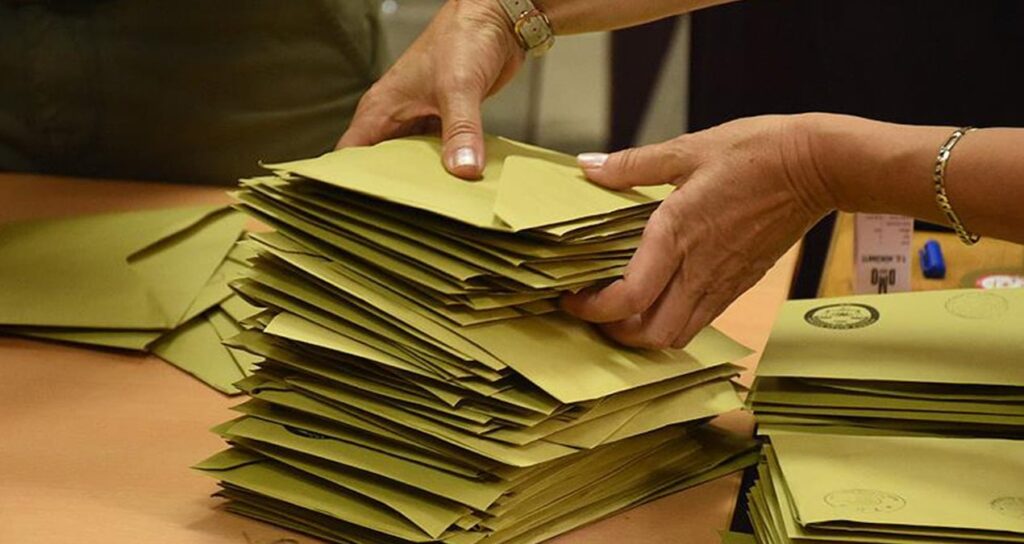A recent legal development concerning the controversial referendum held on April 16, 2017, has garnered attention as the Innovation Party and Zafer Party pursue judicial actions to annul the decision. They allege significant irregularities, particularly the acceptance of unsealed votes, which they claim undermines the integrity of the electoral process. The case has sparked discussions around national integrity and electoral reform, drawing in political parties and legal advocates.
| Article Subheadings |
|---|
| 1) Background of the 2017 Referendum |
| 2) Legal Actions from Opposition Parties |
| 3) Significance of Unsealed Votes |
| 4) Statements from Key Figures |
| 5) Future Implications for Electoral Integrity |
Background of the 2017 Referendum
The 2017 referendum on constitutional amendments faced scrutiny across multiple dimensions. Conducted on April 16, the referendum aimed to significantly expand the powers of the presidency, raising concerns among various opposition factions regarding its potential impact on democratic principles. The Supreme Board of Elections (YSK) oversaw the processes, declaring the outcomes valid despite ongoing complaints, particularly pertaining to the acceptance of unsealed votes. These concerns highlight a critical intersection of law and politics, as arguments surrounding the integrity of electoral decisions continue to surface.
Legal Actions from Opposition Parties
As assertions of electoral misconduct gain momentum, various opposition parties have initiated legal proceedings to challenge the legitimacy of the 2017 referendum. The Innovation Party has publicly stated that they have filed for the referendum’s annulment in the Ankara 45th Civil Court of First Instance. Their lawyer, Sevdagül Tunçer, emphasized the significance of the case, portraying it as a matter of national honor and asserting that unsealed votes undermined the very fabric of democracy. The Zafer Party is also reportedly preparing similar actions, illustrating a united front against perceived electoral injustices.
Significance of Unsealed Votes
At the crux of the legal challenges lies the issue of unsealed votes, which many allege were improperly counted during the referendum. The YSK has defended its decision to consider these votes valid unless compelling evidence suggests otherwise. This ruling has provoked outrage among opposition members who view it as a violation of electoral integrity. According to critics, permitting unsealed votes threatens the transparency of electoral processes and could set a dangerous precedent for future votes, calling into question the overall commitment to ensuring fair democratic practices.
Statements from Key Figures
Following the legal actions, significant voices from the opposition have voiced their concerns regarding the referendum. Hakan Şeref Olgun, the Deputy Chairman of the GOOD Party, mentioned plans to pursue judicial remedy against the constitutional amendments accepted in the 2017 referendum. In his statements, he underscored that the acceptance of unsealed votes, especially in light of other procedural amendments during a critical election cycle, marked an unprecedented deviation from established electoral norms. His position aligns closely with the sentiments of others advocating for a thorough review of the referendum’s processes and outcomes, emphasizing a need for accountability.
Future Implications for Electoral Integrity
As the legal proceedings unfold, the future of electoral integrity in the nation hangs in the balance. The outcome of these cases could have long-lasting implications, not only for the parties involved but also for the public’s faith in the electoral system. Observers argue that a ruling in favor of the opposition could prompt significant legislative changes, fostering a new era of accountability regarding voting processes and standards. Conversely, a ruling against the appellants may solidify the current status quo, leading to potential erosion of public trust in elections.
| No. | Key Points |
|---|---|
| 1 | Legal actions have been initiated against the 2017 referendum due to allegations of irregularities. |
| 2 | The acceptance of unsealed votes is at the center of the controversy surrounding the referendum. |
| 3 | Opposition parties, including the Innovation Party and Zafer Party, are filing for the annulment in court. |
| 4 | Key figures have publicly expressed their dissatisfaction with the YSK’s handling of the referendum. |
| 5 | The legal outcomes may significantly reshape public trust and future electoral practices. |
Summary
The unfolding legal actions against the 2017 referendum emphasize a crucial intersection between law and democratic integrity. As criticisms mount over the acceptance of unsealed votes, various opposition parties aim to hold the system accountable for perceived injustices. These developments may lead to pivotal changes in electoral practices, impacting the nation’s broader democratic landscape.
Frequently Asked Questions
Question: What are the main allegations against the 2017 referendum?
The primary allegations involve the acceptance of unsealed votes, which opposition parties claim compromised the integrity of the electoral process.
Question: Who is leading the legal actions against the referendum?
The Innovation Party, along with the Zafer Party, is leading the legal actions, filing cases in various courts to annul the referendum outcomes.
Question: What does the future hold for electoral integrity based on this case?
The outcome of these legal proceedings may influence public trust in electoral processes and lead to reforms aimed at ensuring greater accountability in future elections.


